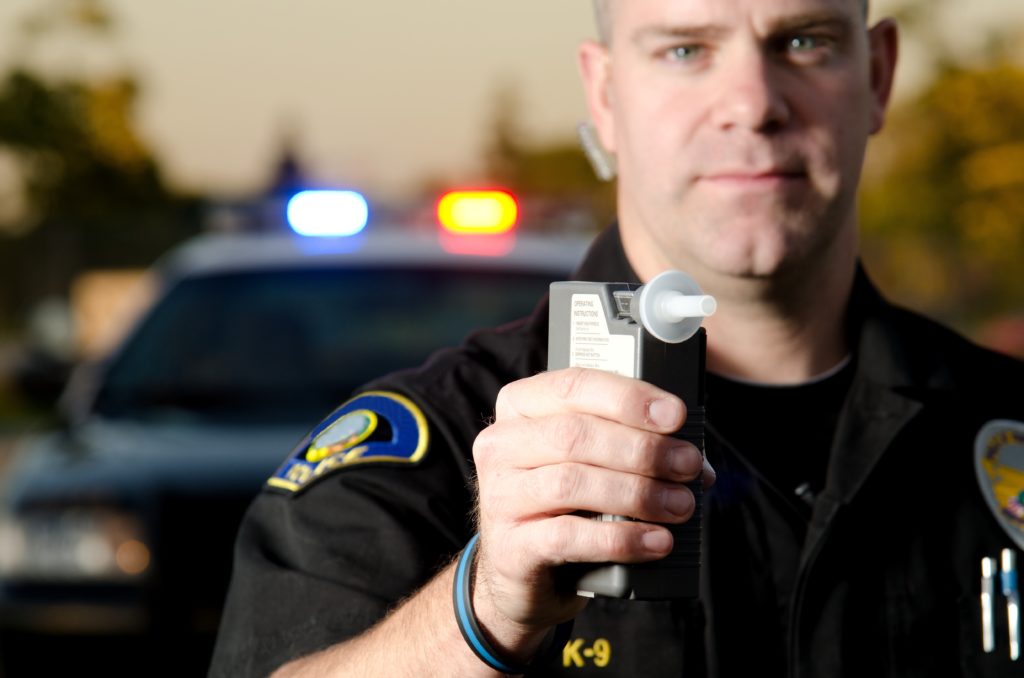
Let’s explore the Standardized Field Sobriety Tests (SFSTs) and how they gauge a driver’s level of intoxication. These tests, developed by the National Highway Traffic Safety Administration (NHTSA), are a series of assessments widely employed by law enforcement agencies nationwide to make DWI arrests and by government attorneys to secure DWI convictions.
Horizontal Gaze Nystagmus (HGN) The evaluation typically commences with the HGN test. “HGN” refers to the involuntary, rapid jerking of the eyes when a driver tracks an object held by the arresting officer. Some individuals mistakenly believe they’ve passed the test if they follow the pen, but in reality, the officer is scrutinizing this eye jerking. The officer follows precise procedures during this test, making it vital to understand what to look for. Deviations from these procedures and specific environmental factors can render the test inconclusive. At Alston | Landry DWI Defense Lawyers, we’ve effectively contested numerous DWI charges using our expertise with HGN to secure DWI dismissals.
Walk-and-Turn Test This test requires the individual to walk nine steps, heel to toe, along a straight line, following specified instructions, and then return to the starting point. The officer provides test directions and offers a brief demonstration (three steps instead of nine). Similar to the HGN test, the officer does not disclose the specific cues they are observing for. The eight potential cues include losing balance during the instructional phase, initiating too soon, stepping off the line, pausing during the test, taking an incorrect number of steps, executing a faulty turn, failing to touch heel to toe, and employing arms for balance. This test is susceptible to errors. The information collected from our clients helps us identify factors that may disqualify them from the test. This information is invaluable when challenging the officer’s testimony during your DMV hearing and in court.
One Leg Stand In this test, the individual must elevate one foot and sustain it six inches off the ground for thirty seconds. The officer monitors for four specific cues: swaying (often interpreted by an officer as swaying one inch side to side, indicating potential intoxication), utilizing arms for balance, hopping, or placing the foot down. Many factors besides intoxication can lead to difficulty in this test.
The officer may occasionally request additional field sobriety tests from the individual, which we can discuss during the free consultation.
What Must the State Prove for a DWI Conviction? As mentioned earlier, the tests used to determine “intoxication” have been outlined. Let’s now delve into the Texas DWI Statute. A Driving While Intoxicated (DWI) charge in Texas is defined under the Texas Penal Code 49.04 as follows:
DRIVING WHILE INTOXICATED. (a) A person commits an offense if the person is intoxicated while operating a motor vehicle in a public place.
To secure a DWI conviction, the prosecution must prove beyond a reasonable doubt that you were:
- Intoxicated,
- Operating,
- a Motor Vehicle, and
- In a public place.
To comprehend the components of a DWI conviction, we must explore what each of these elements entails and what the government prosecutors must establish beyond a reasonable doubt to obtain a conviction.
- What constitutes “Intoxication”?
- What does “Operating” mean?
- What qualifies as a Motor Vehicle?
- What defines a “public place”?
- What Can You Do Now? Step One: Contact a DWI Attorney with Expertise Following a DWI arrest, contact Alston | Landry DWI Defense Lawyers immediately! We are available during evenings and weekends. In some instances, we have successfully secured the dismissal of DWI charges by obtaining evidence that would have otherwise been lost if not pursued immediately.
These situations can vary, but we have obtained security camera footage or photographs of the arrest area. We will schedule a free consultation to explain the process and potential defenses in your DWI case. We will address your questions, such as whether your license is suspended immediately after a DWI arrest, the implications of refusing a breathalyzer, and the costs associated with a DWI case.
Our aim is to alleviate some of the uncertainty and stress associated with the process. You have options that could lead to a dismissal or a reduced penalty. We’re here to share our knowledge and guidance with anyone facing this challenging time.
Step Two: Arrange a DMV Hearing In Texas, if you are arrested for driving while intoxicated, your driver’s license will be automatically suspended unless you request an Administrative License Revocation hearing. To challenge this suspension, you must schedule a hearing with the Department of Public Safety.
This hearing is a civil proceeding that is separate from the criminal case, but the case facts stem from the same incident. We represent you at this hearing and use it as an opportunity to gather evidence that may benefit your criminal case. In fact, we have achieved the dismissal of criminal cases based on the officer’s testimony during this hearing. Although the cases are distinct, the officer is under oath and bound to their testimony in the criminal case.
This hearing must be requested within 15 days from the day you receive notice. Once we act as your Pearland DWI Lawyer, we will request this hearing on your behalf. All motions and dates related to your license will be accessible through the client portal in the Client Center, ensuring you are always informed about the status of your driving privileges. We strive to help you maintain your ability to drive after a DWI arrest.
What Sets Us Apart? Our team of Pearland DWI Attorneys and support staff is committed to delivering exceptional service to our clients. Our dedication to defending those arrested is rooted in our mission to provide unwavering support. We understand the significance of communication, having seen the impact of inadequate attorney-client interaction. As a result, we ensure that our staff and attorneys are readily available for phone calls and consistently update you on your case’s progress.
You can trust that we will make every effort to resolve your DWI case with a positive outcome. We take pride in our high success rate in the complex field of Texas DWI Law. With our expertise and experience, we will tirelessly advocate for your defense, just as if it were our own case.

